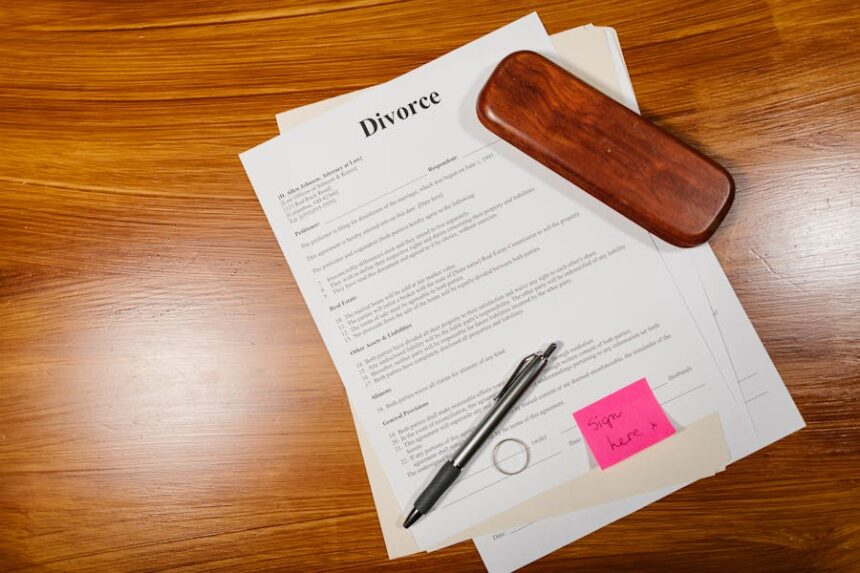Divorce is an emotionally challenging and expensive process that will leave parties feeling overwhelmed and defeated. However, mediation offers a compassionate and strategic approach to navigating the complexities of marital dissolution. By prioritizing mutual understanding and collaborative problem-solving, mediation provides couples with a transformative pathway to achieving fair and equitable settlements while minimizing the stress and conflict typically associated with traditional litigation.
- Understanding Divorce Mediation
- Benefits of Choosing Mediation for Divorce
- Promotes Fair and Balanced Agreements
- Cost-Effective Compared to Litigation
- Reduces Emotional Stress and Conflict
- Key Steps in the Divorce Mediation Process
- Choosing the Right Mediator for Your Divorce
- Finalizing the Mediation Agreement
Understanding Divorce Mediation
Mediation is a structured, voluntary negotiation process where a neutral third-party mediator helps divorcing couples resolve disputes and reach mutually acceptable agreements. Unlike traditional court litigation, which often involves adversarial proceedings and judicial decisions that can leave both parties feeling frustrated and unheard, mediation empowers couples to actively participate in crafting their own settlement terms.
This approach fundamentally transforms divorce from a combative experience into a cooperative dialogue, allowing both parties to maintain greater control over their future and preserve important interpersonal relationships. The role of a mediator is the act as an independent facilitator during proceedings. They will guide dialogue, assist with deadlocks, de-escalate tensions and ensure that both parties are treated equally and fairly. The mediator will also ensure that each party is given equal opportunity to express their needs and concerns.
Benefits of Choosing Mediation for Divorce
Promotes Fair and Balanced Agreements
The nature of mediation is to be a collaborative process. By creating a balanced environment where each spouse can voice their needs, mediators help couples develop comprehensive settlements that address the unique dynamics of their relationship. Mediation does not seek to declare one party a winner over the other but rather to find a mutually acceptable resolution that takes the interest of everyone into account.
Unlike courtroom battles where a judge makes final decisions, mediation allows couples to actively shape their divorce settlement. This collaborative approach often results in more satisfactory outcomes, as both parties feel heard and have directly contributed to the final agreement. The process encourages creative problem-solving and allows for more nuanced solutions that standard legal proceedings might not accommodate.
Cost-Effective Compared to Litigation
Mediation significantly reduces the financial burden associated with divorce proceedings. Traditional courtroom battles can quickly escalate in cost, with legal fees, court expenses, and prolonged litigation draining financial resources that could be better used for rebuilding individual lives. In contrast, mediation offers a more streamlined and cost-efficient alternative.
Comprehensive studies have shown that couples can save on divorce-related expenses by choosing mediation over litigation. These savings stem from reduced attorney hours, minimal court costs, and a more efficient resolution process. Divorce proceedings can be expensive; thus the financial benefit of mediation could be an attractive option for couples looking to resolve their divorce in an amicable manner.
Reduces Emotional Stress and Conflict
By fostering a less adversarial environment, mediation helps mitigate the profound emotional toll of divorce. The process encourages respectful communication and collaborative problem-solving, which can significantly reduce tension and animosity between partners. Studies have shown that mediation is often 2.5 months to 3.5 months quicker than traditional litigation. The effect of having an independent third party that leads proceedings will help to maintain a more amicable environment. This is especially important for couples with children as this minimizes the stress and psychological impact of the entire process.
Children are often the most vulnerable participants in a divorce, and mediation provides a more supportive framework for family transition. By demonstrating cooperation and mutual respect, parents can help their children navigate this challenging life change with greater emotional stability and reduced psychological stress.
Key Steps in the Divorce Mediation Process
While the specific steps may vary depending on the jurisdiction and the mediator’s approach, the general process typically follows these stages:
- Initial consultation: The mediation process begins with an initial consultation, where the mediator meets with both parties to explain the process, establish ground rules, and gather essential information about the divorce case.
- Information gathering: The mediator will request relevant documentation, such as financial statements, asset inventories, and will provide a divorce mediation checklist, to gain a comprehensive understanding of the couple’s situation.
- Joint mediation sessions: The heart of the mediation process involves joint sessions where both parties and the mediator engage in open discussions. The mediator facilitates these sessions, encouraging active listening, identifying areas of agreement and disagreement, and guiding the parties towards potential solutions.
- Private caucuses: In some cases, the mediator may hold private caucuses with each party separately. These confidential meetings allow individuals to express their concerns more freely and explore potential compromises without the presence of the other party.
- Negotiation and settlement: As the mediation progresses, the parties work towards negotiating and drafting a comprehensive settlement agreement. The mediator will assist with drafting the agreement, ensuring that all parties’ concerns and interest are taken into account, drafting the fairest agreement possible.
- Finalization: Once a settlement agreement is reached, the mediator will review the terms with both parties to ensure clarity and understanding. The final agreement is then formalized and submitted to the appropriate legal authorities for approval and implementation.
Choosing the Right Mediator for Your Divorce
As the mediator plays one of the most important roles during these proceedings, selecting a neutral and experienced mediator is important. Key qualities to consider include:
- Professional certification and specialized training in family mediation
- Extensive experience in divorce and family law
- Strong communication and conflict-resolution skills
- Demonstrated ability to remain impartial and unbiased
- Deep understanding of emotional dynamics in divorce proceedings
Finalizing the Mediation Agreement
Once a comprehensive settlement is reached, the agreement undergoes legal review to ensure compliance with local laws and regulations. After both parties and their respective attorneys approve the document, it is submitted to the court for final validation. This process transforms the mediated agreement into a legally binding court order, providing a clear roadmap for the next phase of both individuals’ lives.
The Path Forward: Embracing a Collaborative Divorce
Mediation represents a transformative approach to divorce that prioritizes mutual respect, open communication, and collaborative problem-solving. Mediation will ensure that the challenging time of divorce is resolved with the least impact on parties and their families.
While divorce is never easy, mediation offers a compassionate and pragmatic path towards healing and new beginnings. It provides an opportunity for both parties to close one chapter of their lives with grace and open another with hope, mutual understanding, and the potential for positive personal growth.




